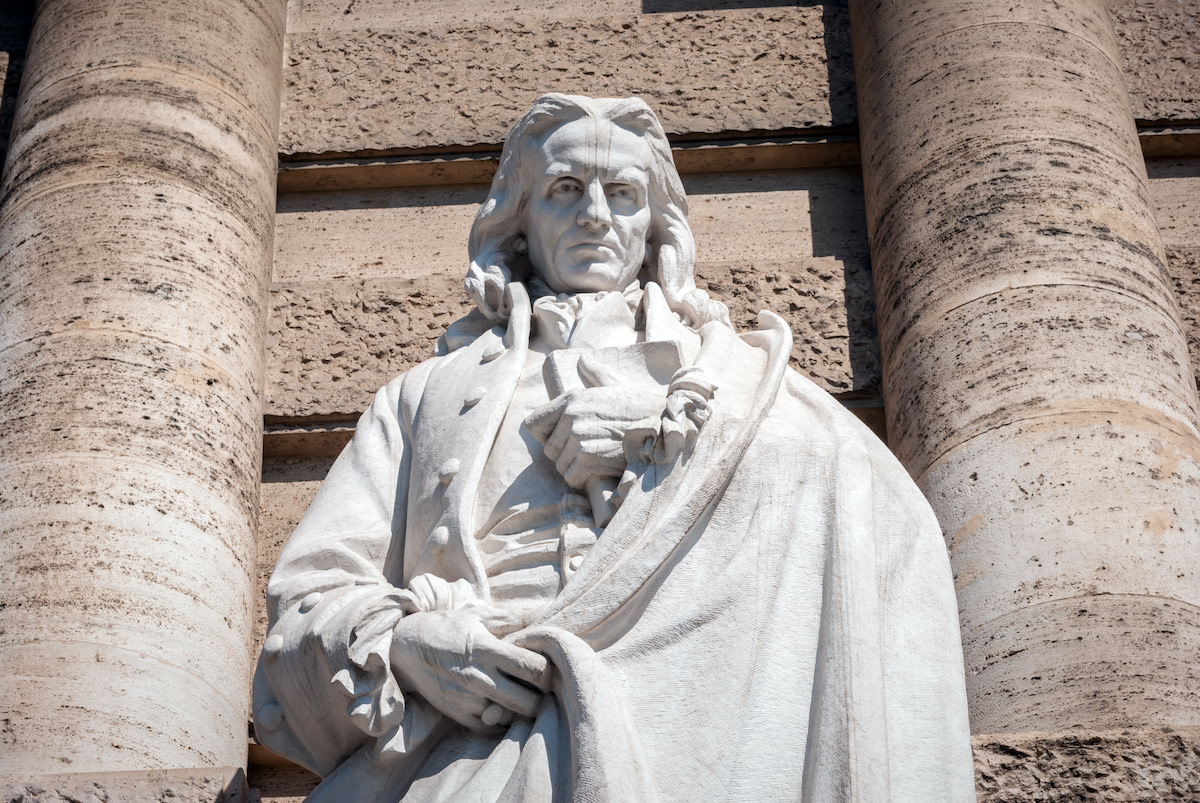An Introduction to Giambattista Vico’s Life and Philosophy
Written by MasterClass
Last updated: Oct 18, 2022 • 3 min read
Italian philosopher Giambattista Vico lived and worked during the Italian Enlightenment. Through his work at the University of Naples and his signature text, Scienza Nuova (The New Science), he became known as an opponent of Cartesian Rationalism, a movement that dominated eighteenth-century philosophy.
Learn From the Best
Who Was Giambattista Vico?
Giambattista Vico (1668–1744) was an Italian philosopher and historian. He served as a professor of rhetoric at the University of Naples, where he was known for endorsing classical Greek and Roman philosophers and pushing back against the prevailing rationalism espoused by followers of René Descartes.
Vico's major work, first published in 1725, is titled Scienza Nuova (The New Science). The text pushes back against the Cartesian principle of using logic and deductive reasoning to prove the existence of physical and metaphysical entities. It attempts to synthesize the philosophy of history, philology (theory of language), jurisprudence (legal theory), and humanities into a single social science.
A Brief Biography of Giambattista Vico
Much of what we know of Giambattista Vico derives from Vita di Giambattista Vico (The Autobiography of Giambattista Vico), which he wrote between 1725 and 1731.
- Early years: G.B. Vico was born in Naples in 1668. His father was a bookseller. In his youth, he studied with Jesuit tutors and attended local schools before enrolling at the University of Naples, graduating in 1694. During this period, Vico also supported himself by working as a tutor in Vatolla.
- Professorship: In 1699, Vico was hired by his alma mater as a professor of rhetoric. He aspired to be the university's chair of jurisprudence but never received the appointment.
- First speeches: During his tenure at the University of Naples, Vico penned and presented numerous orations. These included 1709's De nostri temporis studiorum ratione (On the Study Methods of Our Time), 1711's De antiquissima Italorum sapientia ex linguae latinae originibus eruenda libri tres (On the Most Ancient Wisdom of the Italians Unearthed from the Origins of the Latin Language), and 1722's Il diritto universale (Universal Right). In these orations, Vico offered a humanistic alternative to Descartes’ rational approach to the sciences.
- Major work: His major written work, Scienza Nuova (The New Science), which was published in 1725 and featured three different editions, sought to synthesize the various branches of humanistic education into a cohesive social science. Vico retired from the university in 1741 and died in Naples in January of 1744.
Vico’s Philosophy and Works
Giambattista Vico's legacy centers around his text Scienza Nuova (The New Science). He published two versions. The first, from 1725, is titled Scienza Nuova (The First New Science). The second, with editions from 1730 and 1744, is titled Scienza Nuova Seconda (The New Science of Giambattista Vico). In the work, he pushes back against the use of Descartes’ Cartesian logic to explain existence. Ambitious in his own right, Vico attempts to articulate the synthesized principles of human history, as derived from human nature and the human mind. He believed that all races and nationalities shared a universal common sense, which could be unearthed by studying what he called "ideal eternal history."
Vico's work, and his quest to articulate universal laws of human nature, received only light regard in his own lifetime but gained revived attention in the nineteenth century. Modern scholars connect Vico's thought to the German idealism of Georg Wilhelm Friedrich Hegel. He also influenced twentieth-century writers and philosophers including James Joyce and R.G. Collingwood. Today's university students may study the philosophy of Giambattista Vico alongside that of stalwarts such as Plato, Aristotle, Francis Bacon, René Descartes, Karl Marx, and Friedrich Nietzsche.
Ready to Think Deeply?
Learn what it means to think like a philosopher with the MasterClass Annual Membership. Dr. Cornel West, one of the world’s most provocative intellects, will guide you through fundamental questions about what it means to be human and how to best love your community.
